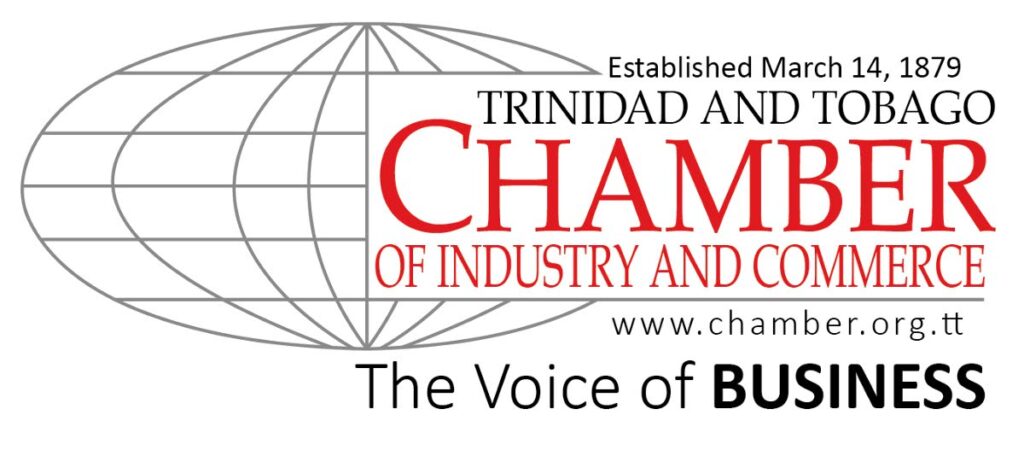Orange economy – Key to economic transformation

MARC SANDY
The time has come for Trinidad and Tobago to fully realise and attain the true economic potential of the creative sector, a relatively low-cost solution to our decades-old quest for a diverse economy.
The Trinidad and Tobago Chamber of Industry and Commerce (TT Chamber) recognises this and has embedded it into the framework of its strategic plan.
This was borne out by its recently concluded mission to the National Association for Broadcasters (NAB) trade show in Las Vegas, US, designed to stimulate new investment and global networking opportunities for key industry players in the local creative sector.
The delegation, led by chamber president Kiran Maharaj, was fully exposed to the cutting edge of technology, equipment and experts in the content creation space.
For the readers who may not be fully aware, let us look at what the creative sector is and the big picture of how it has been performing globally.
According to John Howkins, a leading British strategist on creativity and innovation, the creative sector comprises content creators in advertising, architecture, crafts, design, fashion, film, games and toys, music, publishing, research and development, software, TV and radio, videogames and visual and performing arts.
The creative sector – now commonly referred to as the orange economy – has been an important contributor to global economic output for well over a decade.
An IADB report published in 2013 highlights:
– Cirque du Soleil employs more than 5,000 people and reports a yearly turnover of over US$800 million.
– Estimates suggest that one in ten jobs in Buenos Aires, Argentina, is in the orange economy industries. These industries generate nine in every 100 pesos of the city’s income.
– Netflix has more than 33 million subscribers and a turnover of well over US$3.6 billion a year.
– It is estimated that the Rio Carnival in Brazil attracted over 850,000 visitors in 2012 and contributed US$628 million to the state’s economy.
Let’s briefly stay on the Netflix illustration. The number of Netflix subscribers has grown by almost nine times to approximately 270 million globally and comparable growth rates in its sales turnover, from US$4.9 billion (adjusted for inflation – calculated using the Bureau of Labour Statistics CPI inflation calculator) to US$33 billion.
Why is this important to understand? Perhaps one of the most striking aspects of this growth is the fact that a significant portion of it represents export earnings, as only 82 million of the total global subscribers live in the US and Canada. And yet Netflix is just one international subscription video-on-demand streaming service that generates such astounding economic statistics.
A more relatable illustration for us here in TT is the visitor count and economic earnings generated by Carnival in Brazil.
It is reported that this Carnival contributed US$1.67 billion to the Brazilian economy right before the covid19 pandemic.
The influx of tourists during that period stimulated a host of other industries within Brazil, effectively creating the multiplier effect that boosted the economy around that time.
How can we monetise the orange economy in a way that transforms the economic fortunes of Trinidad and Tobago?
The Trade Ministry and, specifically, TT Creative Industries Company Ltd (Creative TT), must be commended for starting the process that can create a new engine for multiple sectors to flourish.
One such example is its film rebate programme – designed to proliferate the production of TT films and international film co-production.
The value of this rebate system cannot be emphasised enough; the TT Chamber encourages all aspiring film producers to take full advantage and transform film production concepts into reality.
Notwithstanding this, the chamber understands that more is needed to extract the real “juice” from the orange economy.
In this regard, here is the chamber's national call to action:
– Additional incentive schemes for local and foreign direct investment in the orange economy must be developed, implemented and promoted to incentivise larger-scale projects in the industries.
Moreover, this sector should be included as one of the prioritised investment opportunities promoted by national investment promotion agencies.
– The potential of this sector as a meaningful contributor to the business revenue streams must be evident. Once this is understood, large companies will start paying attention to it as they seek to further diversify their commercial portfolios. The TT Chamber's Orange Economy Committee is a demonstration of its commitment to promulgate this message.
– The emergence of joint ventures between investors and local content creators must become commonplace.
The co-production component of Creative TT’s rebate programme is iconic in this regard – a model that can be replicated for content creators in all other facets of the orange economy.
– Comparative advantage in the Carnival industry must be used more strategically to promote the output of all content creators and translate into direct export sales during heightened periods of tourist arrivals. Foreigners must be ushered into an immersive environment that creates the urge for additional spending on all our creative products.
– There will be greater demand for locally manufactured output in such an immersive environment. This will create the need for additional products that cater to the hotels, guest houses and other spaces in which foreigners will be accommodated and will generate more foreign exchange.
– Additional exposure to international best practices in the various sub-sectors of content creation will create more opportunities for digital export of services via international streaming providers such as Netflix, Amazon Prime and Spotify. As mentioned earlier, the TT Chamber recognises this, which created the impetus for spearheading this year’s mission to the NAB trade show.

Participation at global events of that calibre must become a regular fixture on the calendars of all serious content creators in TT.
– The emergence of a world-class trade show that focuses on the orange economy, with key players from local, regional and international state and enterprise sectors, will send a resounding message of our commitment to the sector. Strategic partnerships amongst the local stakeholder community will be needed to make this a reality.
In an environment that continues to be characterised by the need for increased foreign exchange earnings, the TT Chamber sees the orange economy as a game changer toward national economic development. A supportive national infrastructure and enabling regulatory environment around it will open the doors for all the serious players to emerge and will execute its role as the "voice of business," ready to lead the industry to its fullest potential.
Marc Sandy is the manager, trade and business development unit at the TT Chamber.

Comments
"Orange economy – Key to economic transformation"